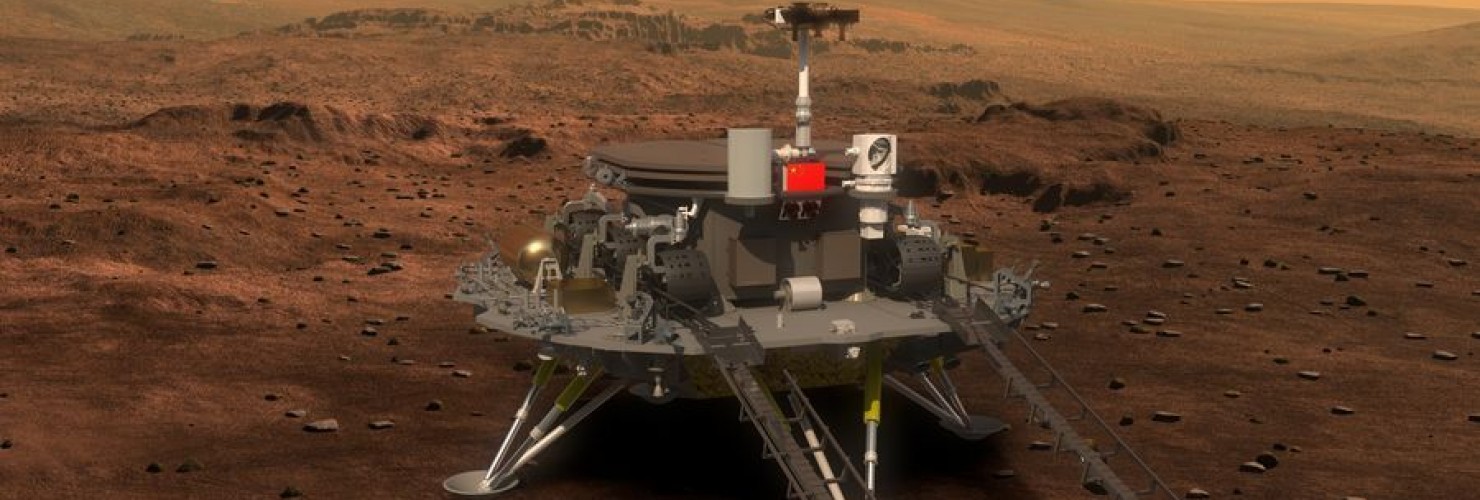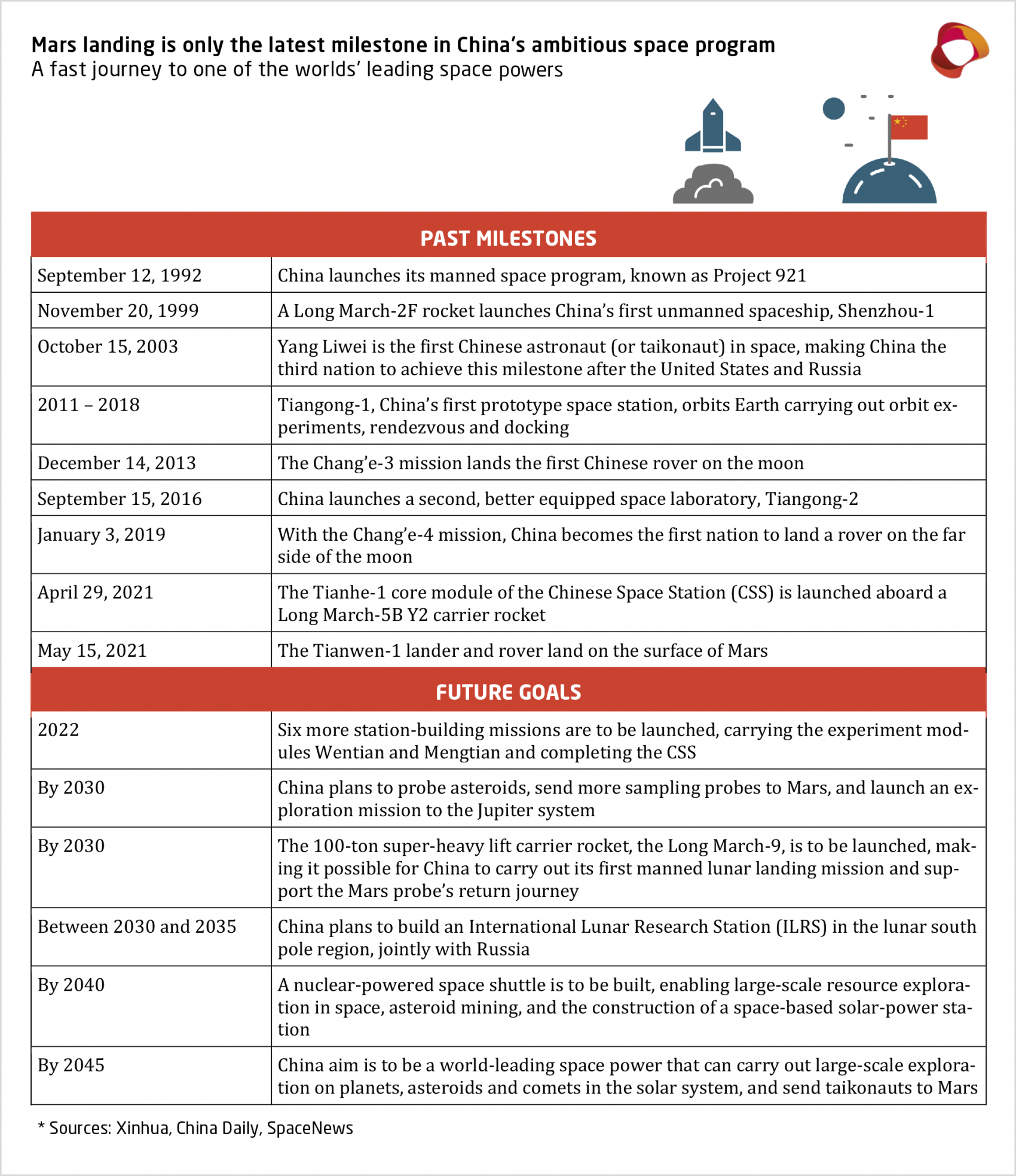

Red Planet: Mars landing marks major milestone for China’s space program
When China landed its rover on Mars last week, it took another great step toward achieving its ambition of becoming “a space power in all respects”. Beijing is determined to harness the scientific, economic, military and diplomatic advantages of its space exploration program, which is also a source of national pride and a major element in the power contest with the United States.
The Zhurong rover (祝融号) is part of Beijing’s first interplanetary unmanned mission to Mars, Tianwen-1 (天问一号). The plan is for the rover to explore Mars’ surface studying the planet’s topography, soil structure, magnetic fields and climate, and searching for potential underground reserves of water ice that could support future human colonization.
It is a historic achievement for the China National Space Administration space program and comes conveniently in the year the Communist Party celebrates its 100th anniversary. The front page of the People’s Daily ran a message from president Xi Jinping, with the title printed in red, praising China’s leap into the “world's advanced ranks in the field of planetary exploration,” and stressing the mission’s significance not just for mankind, but for the country’s “self-reliance in science and technology”.
China still lags behind the United States but has thrown substantial resources into its space program. Last year, it became the first nation to land on the far side of the moon. Having been excluded from the International Space Station mainly due to US concerns about technology theft, on April 29 China launched the core module of its own space station, which it pledged to open for all United Nations members. Russia and China have also signed an agreement to set up a joint research station on the moon.
MERICS analysis: “Deep space is among the cutting-edge science and technology fields listed as research priorities in the 14th Five-Year Plan. China’s progress on interplanetary expedition has been remarkable. Landing on Mars is a much greater technical challenge than landing on the moon. The fact that China could be about to accomplish in one mission what NASA took decades to achieve – reaching orbit, landing on the surface and then getting a rover moving – would be a symbolic victory for an increasingly nationalistic government with bold plans for technological leadership. The significance of this mission in the context of Beijing’s march towards global power status cannot be overstated.” MERICS analyst, Rebecca Arcesati
Media coverage and sources:
- Ministry of National Defense of the PRC [CN]: Xi Jinping’s congratulatory message
- New York Times: China releases first photos after Rover’s Mars landing
- Financial Times: China lands rover on Mars for the first time
- The New York Times: China’s Mars Rover Mission Lands on the Red Planet
- Nature: Why geologists are excited about China’s Mars rover landing
- Global Times: More Tianwen-series probes to collect samples from Mars for research: chief designer
- State Council Information Office: White paper on China’s space activities in 2016
- CSIS: China’s new space station is a stepping-stone to achieving broader ambitions
You are reading an excerpt of our latest MERICS China Briefing.
You can subscribe to this publication on an individual basis. For more information, click here.
MERICS members also have privileged access to this product. If you want to learn more about our membership model for institutions and businesses, please click here.
If you are a MERICS member, you can access the full publication here.
